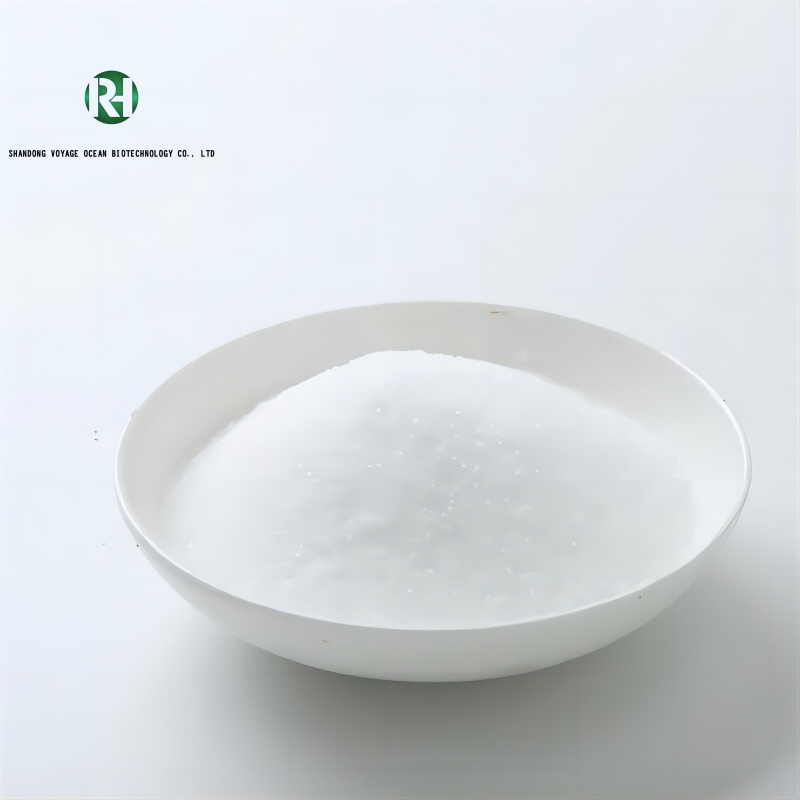Lack of core technology in private hospitals is hard to become a hot spot for PE Investment
-
Last Update: 2013-07-30
-
Source: Internet
-
Author: User
Search more information of high quality chemicals, good prices and reliable suppliers, visit
www.echemi.com
2013-07-30 source: at present, a large number of investors of China Economic Weekly are clustered in private hospitals with specialized chains such as physical examination, dentistry, obstetrics and so on, which have relatively low technical barriers The oncology, neurology, orthopedics and even brain department with relatively high technical barriers are still neglected "Finally, the invitation letter to visit and study general practice mode in Taiwan for three months!" On July 15, Yu Ying, an emergency department super woman who left Peking Union Medical College Hospital for a month, posted on Sina Weibo, which has more than 2.27 million fans, "I didn't accept any offer from any Clinic Hospital, but chose to continue learning for the sake of my ideal!" Yu Ying said that after returning from her study, she plans to use her general practice level and huge social and brand influence exercised in the emergency department to open a private clinic in a senior office building in Beijing A lot of investors are interested in her idea, but she said: "you can't expect my clinic to make profits in five years, just keep it up." PE / VC is targeting private hospitals In fact, it's not only Ying and her future investors who are targeting private hospitals Since 2010, with the introduction of policy documents such as the 12th Five Year Plan for the development of health services and the opinions on Further Encouraging and guiding social capital to host medical institutions, the door of China's medical service market has been opened to domestic and foreign investors On July 25, the general office of the State Council issued "deepening the reform of the medical and health system 2013" In the main work arrangement of the year, it is clearly pointed out that in the future, we will actively and steadily promote social medical services, reduce the relevant administrative licensing matters for social capital to run medical institutions, continue to encourage qualified personnel to run private clinics in accordance with the law, and support non-public medical institutions to develop into large-scale and high-level medical groups With the strong support of national policy, the development of private hospitals ushered in an unprecedented good time In recent years, the number of private hospitals in China has grown by an average of 16% annually, according to the report "investing in China's medical service industry" released recently by Boston Consulting Company Although the number of private hospitals has increased dramatically, the amount of medical services provided by private hospitals only accounts for 9% of the total In the report, BCG predicted that the annual growth rate of patients in private hospitals from now to 2015 will be as high as 32% That is to say, in 2015, the annual number of patients in private hospitals will be 400 million more than now Huge market capacity and broad development prospects make all kinds of capital ready to move "We have invested in 18 private hospital projects since 2010," an investment manager specializing in equity investment in the healthcare industry told reporters Wu Chun, partner and managing director of Boston consulting company, told reporters that there are about five types of social capital entering the medical service industry, including PE/VC (private or venture capital fund), listed pharmaceutical companies, industrial capital, foreign medical groups and local medical groups "PE / VC has the largest amount of investment and transaction." According to Wu Chun, between 2008 and 2012, there were more than 29 transactions of this investment type, accounting for 54% of all investment types Blind investment and poor management lead to loss "For PE, what they are looking for is investment value-added They hope that the investment target can have a high growth in 3-5 years." Said Wu Chun The investment manager told reporters that their investment cycle for a project is usually about three years, with an average investment amount of about 200-300 million These projects usually appreciate within two years "When we choose a project, we will definitely consider whether it is possible to go public After all, only going public can maximize the interests of investors Of course, if we meet the right opportunity in the middle, we will also change hands 17 of our 18 projects have gained appreciation On average, the annual yield of each project is about 30% Although investment in private hospitals seems to make almost no loss, not every investment can succeed "There are also many failures, such as the Nanjing Mingji hospital invested and built by Taiwan Mingji group in Jiangsu Province in 2008 Due to the lack of medical insurance coverage, low bed utilization rate and the lack of attracting excellent doctors, it has not been profitable since its opening up," Wu Chun told reporters Last September, Yunnan Charity Hospital was also exposed by the media that it was on the verge of bankruptcy due to the failure of hospital investment, and it had to sell assets to settle medical staff According to Tian Yu, project manager of Boston Consulting Company, many investors hope to see the investment return in two or three years, but for some large-scale investment projects, the return period is at least 7-10 years "In fact, a lot of projects are not successful if they haven't seen the return after 2-3 years of investment, and investors also need to consider whether the funds can be continuously guaranteed in the later stage." The investment manager told reporters that the only project that has not been profitable so far is the first one after they invested in the medical industry "At that time, I was holding the money in my hand, and I was thinking about how to spend it quickly The research was not solid, and the money has been put in it for almost four years now." Tian said that if the investors themselves are not familiar with the internal management of the hospital and intervene in the hospital affairs directly, it is easy to cause problems in the operation of the hospital "If the state of hospital operation is changed without authorization, the doctors and staff of the hospital will be in conflict In addition, in terms of hospital fund management, if not handled properly, it will also bring difficulties to hospital operation " Private hospitals are lack of core technology "Now the State encourages social capital to run hospitals, and everyone sees the opportunity to build hospitals Although there are many hospitals, the level is uneven " "What we lack now is not money, but good projects and rational investors," an industry person who is engaged in medical project investment told reporters According to Wu Chun, the lack of medical resources is also an important factor restricting the development of private hospitals She said that although there are high-end experts in private hospitals at present, compared with public hospitals, the doctors in private hospitals are more "old or small", and the middle-aged backbone is obviously insufficient The cooperation model between Beijing Children's Hospital and public hospital in the new century can be called innovation Beijing new century children's Hospital (hereinafter referred to as "new century") is the largest private pediatric hospital in Beijing The two hospitals cooperated in 2006, and Beijing Children's hospital will send about 20 doctors and nurses to the new century every year "We are like the International Department of Beijing Children's hospital They will recommend some diseases to us when they encounter them." "For private hospitals, the scarcity of medical resources is a big problem," Xin Hong, director of new century operations, told reporters Our cooperation with children's Hospital ensures that we can have a stable medical resource " According to her, the doctors sent by Beijing Children's hospital account for about one third of the total doctors in the new century In the eyes of investors, the risk coefficient of investment in the new century will be much lower than that of other projects, but for good projects, everyone is competing, and the natural threshold for investment will rise "When we invest in private hospitals, we usually require a shareholding of about 20%." An investment manager told reporters, "this kind of project is good in the new century, but the investment threshold is too high The same investment is 300 million yuan Our final shareholding ratio is too small, and we can only give up without the right to speak." In addition to the small number of projects, in Wu Chun's view, China's private hospitals still have the problem of high concentration "At present, a large number of investors are flocking to specialized private hospitals with low technical barriers, such as physical examination, dentistry, obstetrics and so on For private general hospitals in the mass market, as well as tumor, neurology, orthopedics and even brain departments with high technical barriers, there is still no interest." In the view of investors, the reason why the State encourages social capital to run hospitals is that the existing public hospitals can not undertake such a large market scale, so the state will open some non mainstream projects to private hospitals Industry insiders told reporters:“ In our opinion, in addition to the relatively high technical barriers, the main businesses of general hospitals or public hospitals such as chest, brain and tumor, although the state has issued relevant opinions to encourage social capital to run medical institutions, but there is no clear rules to encourage us to invest in these areas, so we will not easily invest in such private hospitals " An investor who has been engaged in medical industry investment for many years told reporters that he and his team are not optimistic about those medical fields with relatively high technical barriers On the one hand, due to policy considerations, on the other hand, they have inspected one or two specialized hospitals in this field However, these hospitals often rely on one or two senior doctors, and there will be one doctor in operation Factors of instability
This article is an English version of an article which is originally in the Chinese language on echemi.com and is provided for information purposes only.
This website makes no representation or warranty of any kind, either expressed or implied, as to the accuracy, completeness ownership or reliability of
the article or any translations thereof. If you have any concerns or complaints relating to the article, please send an email, providing a detailed
description of the concern or complaint, to
service@echemi.com. A staff member will contact you within 5 working days. Once verified, infringing content
will be removed immediately.







